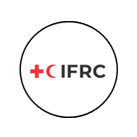The Red Cross and Red Crescent National Societies, among other groups and organizations, were heavily affected by the COVID-19 pandemic and required additional digital support in their emergency response. 510, the data and digital initiative of the Netherlands Red Cross, was able to scope, alongside various National Societies, the technological support needed during these times. Among the various data and digital products that were being worked on, data responsibility support was one of the key elements that were provided. When talking to Joachim Ramakers, 510’s Program Manager for Data and Digital Support, about data responsibility he said “it is a young field that remains relatively undefined and, in some cases, is mentioned in the same breath as data protection and privacy. It is broader however and in short, is about not causing harm through the data we process”. His statement highlights the importance of spreading awareness on data responsibility and sharing lessons learned with National Societies to get this new field adapted into daily practices.
Data responsibility capacity building
Over the past few years, there has been an increase in the use of data and digital technologies within the Red Cross and Red Crescent National Societies. When discussing the shift towards digital and its linkage to data responsibility, Ramakers stated that “data and digital technologies offer a tremendous potential to improve the speed, quality and cost-effectiveness of our humanitarian work, but we have to make sure that we do no inadvertently cause harm when using these new technologies”. This is why there is a need to raise awareness on data responsibility, more so because the latter plays an integral part in the digital transformation of the RCRC movement. For that, 510 set up multiple webinars and trainings with various National Societies as part of its Global COVID-19 support initiative. The presentations included an overview of how 510 has been integrating data responsibility into its projects, how they developed their data responsibility policy, and how they are internally raising awareness on the topic. Ramakers elaborates on the process of building the staff’s data responsibility capacity by saying “it is not realistic to expect that all staff is familiar with all the rights of data subjects; we aim for staff to (1) be able to recognize when they work with personal or sensitive data, (2) be able to articulate what could go wrong and (3) knowing where to go for advice when needed”.
Adopting new policies
The Ethiopian Red Cross Society (ERCS) was among many National Societies that participated in 510’s data responsibility trainings. Henok Wondimu, the Geographic Information System and Data Management Coordinator from ERCS, shared his insights on the data responsibility workshop by saying “the virtual training and experience sharing was helpful and acted as a primary guidance that oriented our course of data responsibility preparation”. When talking about how ERCS is getting along with preparing its own policies, Wondimu stated that “the presenters tried to give us enough support and guidance to prepare our data responsibility policy and the team is customizing 510’s document by combining other related policies such as local and global legislations”. The inclusion of local knowledge around data responsibility is important because the potential to harm is determined by the local context. Similarly important from an international cooperation perspective is the inclusion of international policies, such as the General Data Protection Regulation. Wondimu was pleased to share ERCS’ most recent update on their policy work by saying “now we are finalizing the draft document and submitting it to ERCS’ management for further review and approval”.
The growing interest in data responsibility
Ethiopia is not the only National Society that is currently working on adapting and improving its data responsibility policies, many others have followed in their footsteps. Both the Jordan Red Crescent Society and the Lebanese Red Cross have shown interest in enhancing their respective policies; the former has been working on establishing a juridical committee on the National Society level, and the latter currently hired a consultant who is working on upgrading the National Societies’ data responsibility guidelines and policies. As stated by Ramakers “people have become empowered to demand to know what we, as organizations, are doing with their data”. Hence, National Societies and humanitarian organizations must be accountable and transparent about how data is being used to effectively improve their operations.
Source de l'image : FICR
Des informations pertinentes sur les individus et les communautés dans le besoin peuvent être utiles pour fournir une aide humanitaire efficace et personnalisée. Notre politique de responsabilité en matière de données porte sur le traitement responsable des données dans le respect des normes éthiques et des principes dans le contexte humanitaire, en tenant compte des conséquences potentielles et en prenant des mesures pour éviter de mettre en danger les individus ou les communautés. Pour en savoir plus sur notre politique de responsabilité en matière de données, cliquez ici

